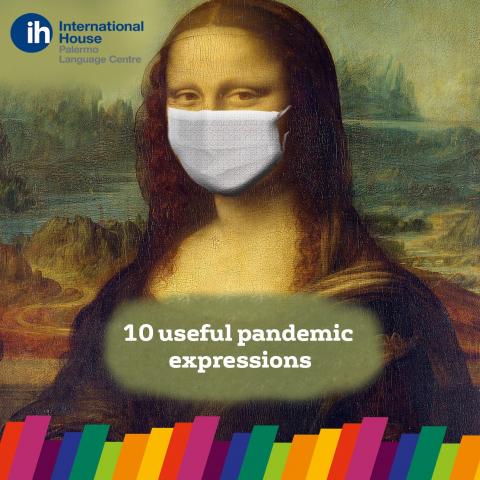
10 words and phrases you will need to talk about the global pandemic
If you open any newspaper, look at any news website or even chat to a friend, there is one thing that ALWAYS comes up in conversation at the moment…. the coronavirus.
So in order to be fully prepared to read and talk about this subject, we have created a list of the ‘must-know’ words that you’ll need. Some of them are very similar (or even identical) in Italian, but there is usually a difference in pronunciation, so let’s have a look!
Now obviously this is the same word that is used in Italian, but there is an interesting difference in the stress of the word. In Italian, it is pronounced lockDOWN, whilst in English, it is pronounced LOCKdown.
2. QuarantineAgain, very similar in Italian, and like no. 1, something crazy with the pronunciation. One might think that the word is pronounced with the same ending as the word ‘line’ or the name ‘Caroline’, but it is pronounced ‘quaranTEEN’ (like ‘teen’ in ‘teenager’).
But if you think English pronunciation is crazy, read no. 3!
This is a word that almost no English people knew before this pandemic!
But it is used when you don’t go to work because your employer cannot pay you and you receive money from the government. The equivalent of this in Italian is “cassa integrazione”.
But like numbers 1 and 2, the pronunciation is a bit strange. It is pronounced “fur-low” and it can be a verb or a noun. Common phrases you hear at the moment are “I’ve been furloughed” or “my company has put me on furlough”.
You will often find the word ‘form’ at the end of this. You currently need this when travelling to / from the UK to say what country you are coming from / going to and basically to declare you haven’t got the virus, or that you will quarantine for 15 days. The equivalent of this in Italian is “autocertificazione”.
5. HotspotThis is when there are a large number of infected people in one place. The equivalent of this in Italian is ‘focolaio’, but the good news here is that there is nothing strange about the pronunciation or spelling of this term!
6. Work RemotelyThis is when you work at home from your computer. You will often hear people say “I’m working remotely” or simply “I’m working from home”.
Note that if you say “I’m smart working” people will think be a bit confused and may think that you are “working in an intelligent way”!
These are very common at the moment and it is the test that you do to see whether you have the virus or not. In Italian it is ‘tampone’, but as we know, ‘tampon’ in English means something very different! ;)
Although it must be said, that it is not very common in English to say “I’ve got to do a swab”, it’s more common to say “I am doing the test to see whether I have the virus or not” or something similar using the word ‘test’.
Arguably the strangest term ever, can you be social at a distance? But again, it can be used as a verb or a noun. You will hear people say “you need to socially distance” or “the only way to beat the virus is through social distancing”.
9. Key workersA very common term in the UK at the moment and it is used to describe doctors, nurses (and anyone who works at a hospital / doctor surgery) as well as people who work in supermarkets. They are referred to as ‘key workers’ as even when the country was in total lockdown, it could not function without these workers.
Key workers are also given ‘special treatment’ at the moment. Many shops offer discounts for them and they are also allowed to enter many shops without queuing.
Now this one causes confusion among English people as well, as you will often see “everything will be alright”. Obviously the translation of this is “andra’ tutto bene”, but the spelling of this causes some debate in English.
The term ‘alright’ is written so much these days that it seems totally normal; however, there is NO dictionary that accepts this as correct spelling! The correct way to spell it is “all right”, but as we know, languages evolve and it will almost certainly be written as “alright” in the future.
